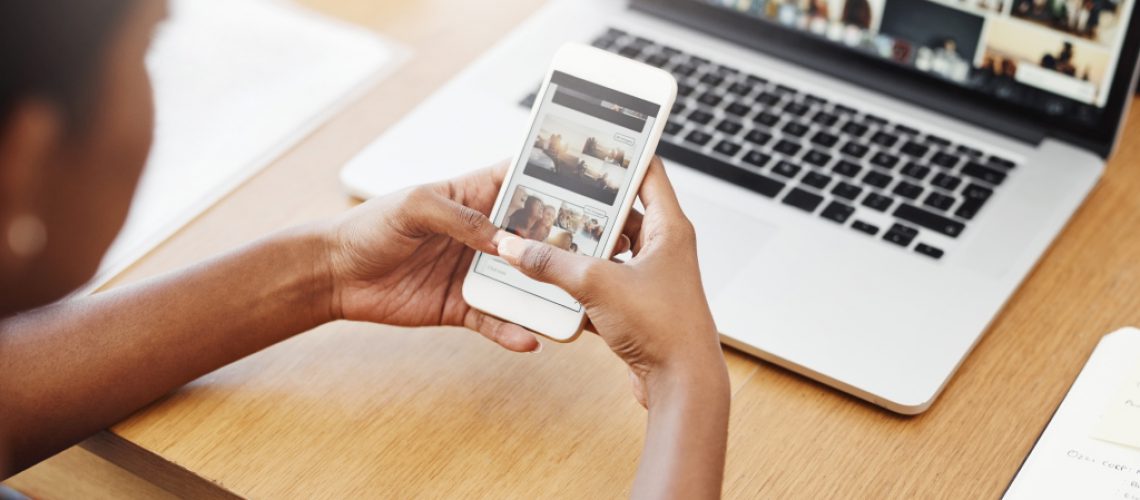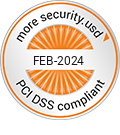Countless images are being used on the internet – whether they’re used to illustrate news articles or to make websites more aesthetically pleasing. Pictures are great for breaking up large chunks of text, they help make pages emotional and are useful for SEO purposes. So, it’s no wonder that royalty-free stock photos are so popular. According to a survey conducted by the German freelancer information site Selbststaendig-im-netz.de, 30 percent of their readers use free pictures from the internet. Three percent said they simply use random pictures they find on the internet.
Websites like Pixabay, Pexels and Unsplash promise professional stock photos for free. And they don’t even require that users mention the author’s name in the caption. Such websites generally look very professional: Users can search for specific pictures or get inspired by browsing through various categories. The images are beautiful and are often available in their native resolution. It’s truly incredible – perhaps too good to be true? Indeed – when using such platforms for free images you’ll need to exercise extra caution. Not all of these ostensibly free images may be used without any restrictions.
Contents
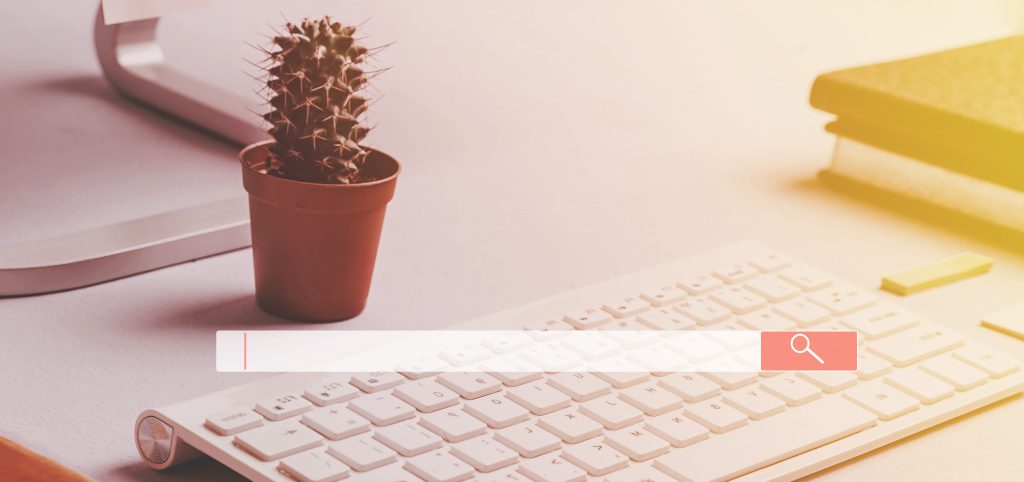
What Are Pixabay, Pexels and Unsplash?
If you work with free pictures, then you’re likely to have encountered royalty-free stock communities like Pixabay, Unsplash and Pexels – platforms offering public domain images. Pixabay, for example, was founded in Germany in 2010 and offers access to around 1.4 million public domain images, illustrations and videos that can be downloaded for free.
Photographers can upload their pictures to platforms like Pixabay, Unsplash and Pexels for free and can offer them to other users free of charge. Users in turn therefore assume that all pictures they find on Pixabay are free to use.
Here’s the problem with platforms that supposedly provide access to “free” pictures: They often do not have the necessary rights to do so. This is the case, for instance, when images are not uploaded by the photographers themselves but instead by somebody without authorization. The photographer is the image rightsholder and thus the only person who can make decisions about how the image is used. Despite this fact, it is not uncommon for anonymous users to upload pictures to online platforms without a rightsholder’s permission.
If the provider does not have the proper exploitation rights for an image, then it can become quite expensive for those who are using the picture.
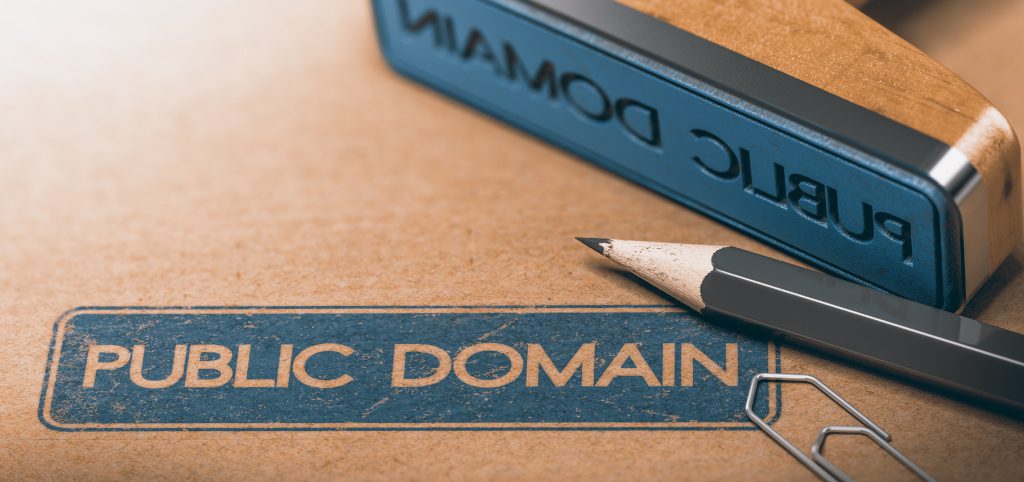
What Do I Have to Consider When Using Free Images From Pixabay and Unsplash?
Healthy skepticism is called for when you encounter free, professional pictures that can be used without any restrictions – even commercially. Because high quality pictures require a great deal of effort to create, it is rather unlikely that they are offered free-of-charge. For commercial usage, photographers normally charge an appropriate fee – after all, their business model involves the sale of their pictures. Here’s a list of patterns to be on the lookout for when dealing with free stock photos:
► Pictures from anonymous users
Pixabay.com and similar platforms are websites where users can upload images without verifying their identity. Users can simply register with a username and an e-mail address. Since nothing is verified, there’s no way to know if a user is authorized to upload an image. The inherent anonymity on these platforms creates a breeding ground for abuse. A user who isn’t the rightsholder obviously cannot grant others applicable exploitation rights. Anyone using pictures from this type of platform could be violating a photographer’s rights and can also be held responsible for it.
► Professional images without author attribution
While photographers are free to waive their right to attribution – i.e. the mention of the author’s name and copyright note – the practice of doing so is uncommon. Photographers live from royalties and they use the copyright attribution for advertising purposes. It increases their brand awareness and helps them to more easily obtain future jobs.
► Platforms with a disclaimer
Reputable photo agencies guarantee that the use of an image is permitted within the scope of the license granted and that the rights of third parties are not violated in doing so. If such a guarantee is missing in the terms and conditions, then you should proceed with utmost care. In such cases, the platform probably doesn’t check who the rightsholder is. The website’s terms and conditions are likely to include a sentence that says, for example: “The uploader is solely responsible for the images he or she uploads.” A clause such as this transfers the responsibility for legally authorized usage of an image to the user. In the event of a legal dispute, the user can be held liable and that supposedly free picture will turn out to cost a pretty penny.
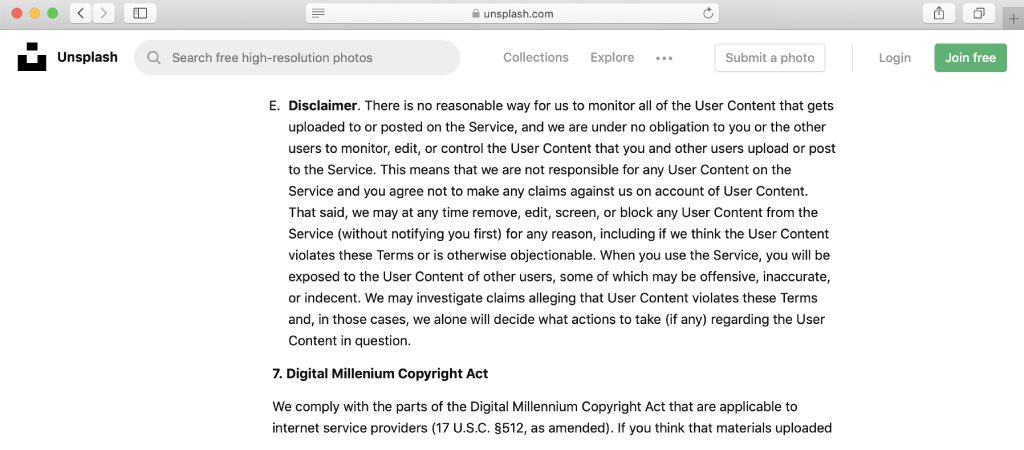
► Photos with a Creative Commons License CC0
The CC0 license is the most liberal form of the Creative Commons licenses. It permits any conceivable usage – except for copyrighted content within the image such as trademarks or the depiction of people in the image who have not waived their rights. The Creative Commons license CC0 provides a legally sound basis between author and user. It saves money and users don’t have to worry about cumbersome attributions.
By using a so-called CC0 license, a photographer acting as the rightsholder completely waives his rights to the photo and to attribution. The image can thus be used without any restrictions – even commercially. This is legally possible, but rather unusual for high-quality, professional photos. In this case, the photographer receives no benefit whatsoever for his work and he’ll gain neither wealth nor fame from it.
► Be extra careful with images of people
Users should take particular care when working with images that contain people. In such cases the usage rights don’t lie solely with the photographer; to publish such pictures, you’ll also need permission from the people in the photograph. It could very well be that the author of the picture has surrendered his or her rights – but the person in the picture still has personal rights that are not allowed to be violated. Generally there won’t be a written model agreement (also known as a model release) with the people in the image that dictates who may use the image and within which scope. It is then generally unclear whether the people depicted agree to use of the image.
Pixabay explicitly states in its terms and conditions that: “Because Pixabay does not require a written model contract for every identifiable person in uploaded images, we cannot guarantee that the images may be used in every context. If a model contract exists for a picture, we assume no liability that it is legal or valid.”
When it comes to the rights of third parties, images displaying logos, trademarks or protected objects can also be problematic. In cases of uncertainty, the user must also pay here.
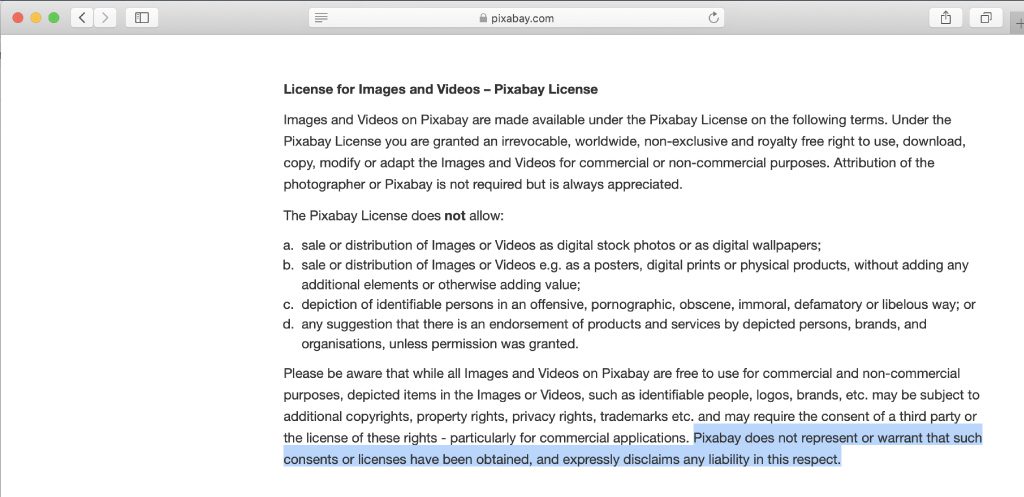
► Problems with international usage
Pixabay is a German company with international dimensions. Users from all over the world can upload and use pictures. That can lead to further complications, because there are different protection periods written into copyright laws around the world. Determining which law is applicable depends on international agreements and the national laws specified therein.
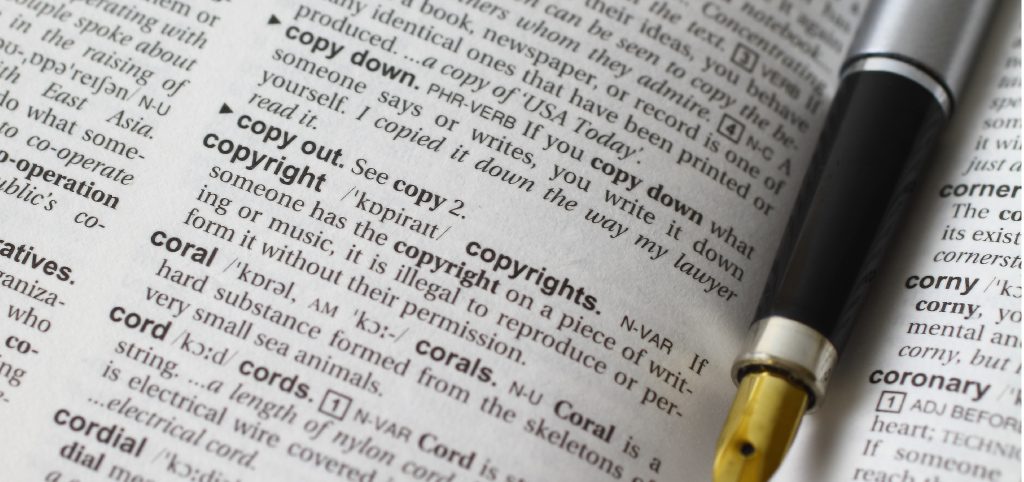
What Consequences Can I Face for Using Unlicensed Pictures?
If you use a picture from a website that has provided access to the picture without permission, then you are in violation of the author’s copyrights. If a legal dispute arises, you will have to prove that you have acquired the necessary rights from the author. The author can sue for injunctive relief and damages and you’ll also risk exposure to claims for removal, injunctive relief, reimbursement of costs and damages. You cannot point to the fact that you downloaded an image in the belief that it was free as a defense.
“Ignorance of the law excuses not” – The old Latin proverb holds true today, especially for copyright law: German law, for example, requires anyone who wants to use someone else’s picture to first unambiguously ensure that he or she is entitled to do so. It’s not enough to simply rely on a contractual partner’s claims. The person who wants to use the photo is obligated to check the entire chain of ownership all the way back to the author. Otherwise the use of “free” pictures can become quite expensive!
Users of such platforms could possibly have a right to claims for damages against the platform if it turns out that where uploaded illegally and are not actually license free. But whether and to what extent a user can take legal action against the platform will depend on the circumstances of the individual case. It’s much more prudent to not even let it get this far!
The problem with platforms like Pixabay and the like is that rightsholders cannot be reliably verified. Since content isn’t validated, most platforms include a disclaimer in their fine print. For naïve users, this is a problem when copyright protected images are uploaded by bad actors without the necessary authorization.
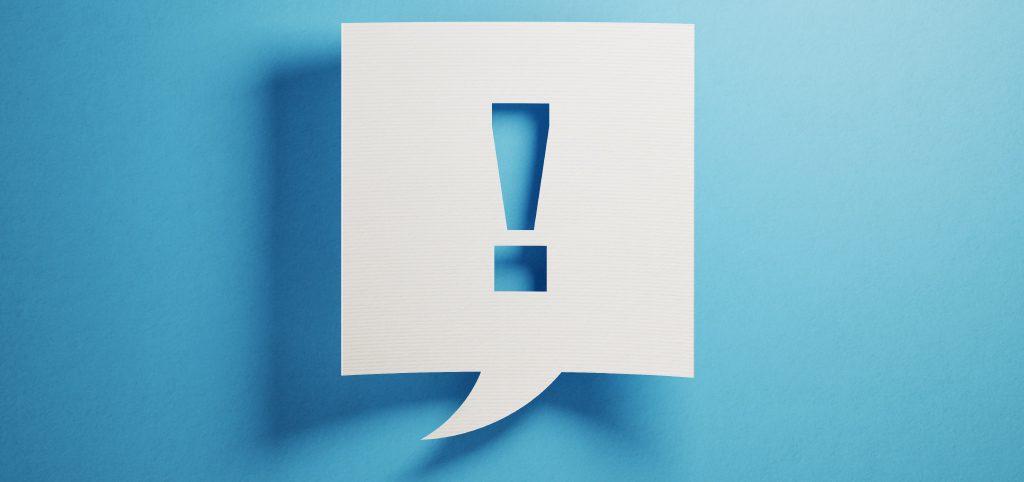
Our Tips to Protect You from Unwanted Costs
1. Always be skeptical of “free images”
Using images from Pixabay or other similar platforms won’t protect you from receiving warning letters. The Copytrack image search crawls the web on behalf of photographers to find unauthorized image matches. In doing so, we’ve noticed again and again that many of these pictures are offered illegally as free downloads. This isn’t only annoying for image authors; it can also have costly consequences for image users. Depending on the image, usage duration and license practice, an ostensibly free image can suddenly cost thousands of dollars. After all, photographers also want to be paid for their work.
2. Read the terms and conditions
Yes: even the fine print! If you have a look at the Unsplash.com general terms, you’ll notice that the images they offer are considered “user generated content”. The Pexels platform thus assumes no responsibility for the for the accuracy of the Pexels license. According to their terms and conditions, users are requested to correctly upload their images but Pexels doesn’t verify authorship. In plain English, that means that anyone can upload any image they want without being the author or having the applicable exploitation rights.
3. It’s better to purchase licensed pictures
If you want to be on the safe side when it comes to image usage, then you should purchase your images directly from the photographers, from stock agencies or from image agencies. These days there is an endless selection of such providers that offer good quality pictures for just a few dollars.
4. Save purchased licenses
Even the photographers themselves can lose track of past transactions given the sheer size of the market for digital images. As a result, you could potentially receive an unwarranted warning letter. For this reason, you should always document any purchase of pictures along with the corresponding license. Ideally you should save the image name, the license conditions and the date of purchase.
The internet isn’t the wild west and you should beware of geeks bearing gifts. Behind every photograph there’s a person who put in tremendous effort to produce such breathtaking pictures to share online. Give the photographer the recognition he or she deserves so that they’ll keep following their passion. The price you’ll pay for a legitimate license from a transparent company is considerably lower than the costs that would be incurred if you’re caught using pictures without a valid license.
Are your images being offered as free downloads on Unsplash, Pixabay or another such website?
If you suspect that your photos are being used illegally on the internet, then consider using our free image search or our manual claim submission tool. Our experts have already successfully defended copyright law in more than 80 countries and would be happy to help you pursue your rights as well.
Written by John Peacock

